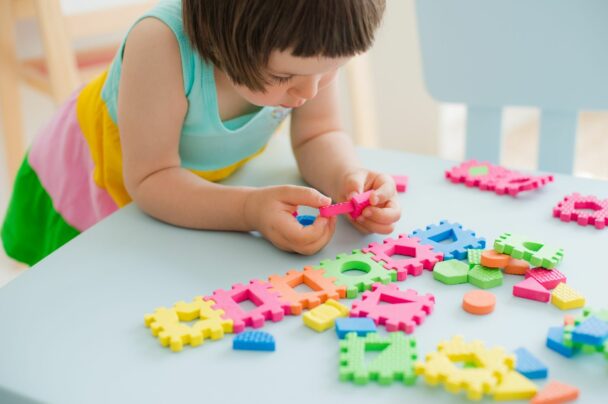Description
Understanding little minds and child development is essential in early childhood education, allowing teachers to tailor teaching strategies to individual needs, stimulate cognitive growth, and foster social and emotional skills.
Early Childhood Education is the foundation for a child’s future academic success, social skills, and overall well-being.
Understanding child development during these formative years is essential for creating a positive learning environment that nurtures the unique needs and development of each child.
This course will explain to you the foundations of child development, from physical and motor development milestones to cognitive and intellectual growth, and the important role of social and emotional development.
During the course, you will practice how to enhance social and emotional development through communication and how to recognize individual differences and needs in the classroom.
From case studies to group activities, you will have the chance to learn about the learning environment designed for early childhood education that focuses on both an inclusive approach and individual child development.
By the end of the course, you will gain an understanding of the foundations of child development and the practical skills to implement this knowledge in your teaching practices.
You will design your own action plan for your early childhood education unit and later on be able to explain to your colleagues how to actively support the diverse developmental needs of each child.
What is included
Learning outcomes
The course will help the participants to:
- Understand the foundations of child development;
- Implement practical activities for stimulating physical and cognitive development;
- Recognize the importance of social and emotional development in early childhood;
- Develop effective communication strategies tailored to support social and emotional development;
- Address individual needs in early childhood education;
- Design an action plan for their early childhood education unit to support and understand the child’s development.
Tentative schedule
Day 1 – Course introduction
- Introduction to the course, the school, and the external week activities;
- Icebreaker activities;
- Presentations of the participants’ schools;
- Goal setting for the week;
- Overview of key theories of child development.
Day 2 – Understanding the foundations of child development
- Exploring physical and motor development milestones in early childhood;
- Overview of the cognitive and intellectual development;
- Practical activities for stimulating the cognitive development of the child.
Day 3 – Enhancing social and emotional development through communication
- Understanding the importance of social and emotional development;
- Discussion on attachment theory and its implications for teaching;
- Effective communication strategies for educators.
Day 4 – Recognizing individual differences and needs
- Strategies for inclusive education;
- Case studies related to special needs in the classroom;
- Hands-on activities related to individual needs and child development.
Day 5 – Put your ideas into practice!
- Group discussion about the topics of the week;
- Action plan: Designing and planning an action plan for your early childhood education unit to support child development.
Day 6 – Course closure and cultural activities
- Course evaluation: round-up of acquired competencies, feedback, and discussion.
- Awarding of the course Certificate of Attendance.
- Excursion and other external cultural activities.



